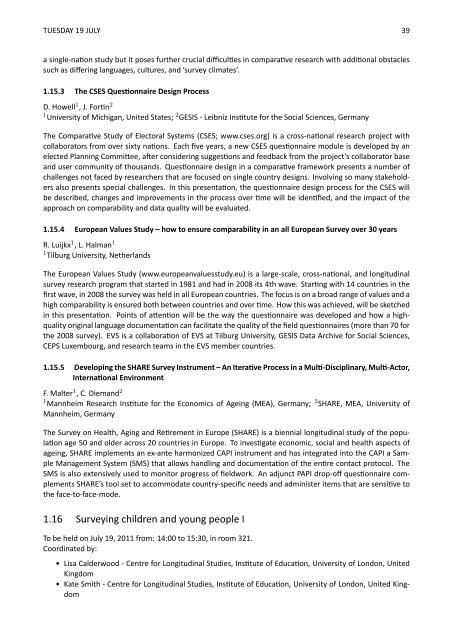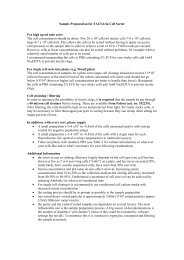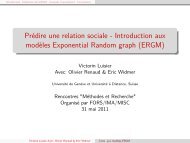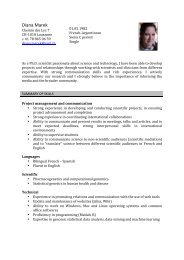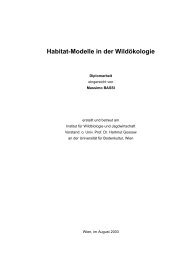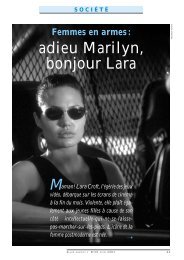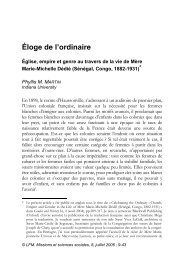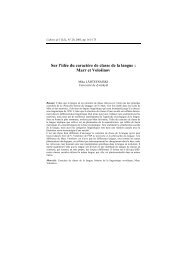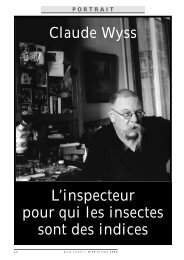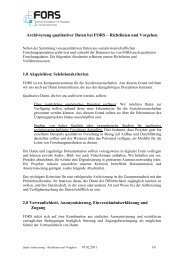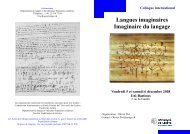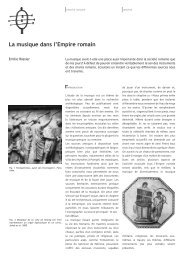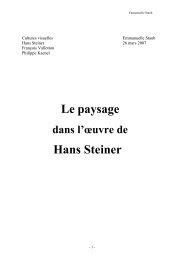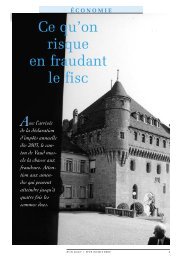conference programme book - European Survey Research ...
conference programme book - European Survey Research ...
conference programme book - European Survey Research ...
You also want an ePaper? Increase the reach of your titles
YUMPU automatically turns print PDFs into web optimized ePapers that Google loves.
TUESDAY 19 JULY 39a single-naon study but it poses further crucial difficules in comparave research with addional obstaclessuch as differing languages, cultures, and ’survey climates’.1.15.3 The CSES Quesonnaire Design ProcessD. Howell 1 , J. Forn 21 University of Michigan, United States; 2 GESIS - Leibniz Instute for the Social Sciences, GermanyThe Comparave Study of Electoral Systems (CSES; www.cses.org) is a cross-naonal research project withcollaborators from over sixty naons. Each five years, a new CSES quesonnaire module is developed by anelected Planning Commiee, aer considering suggesons and feedback from the project’s collaborator baseand user community of thousands. Quesonnaire design in a comparave framework presents a number ofchallenges not faced by researchers that are focused on single country designs. Involving so many stakeholdersalso presents special challenges. In this presentaon, the quesonnaire design process for the CSES willbe described, changes and improvements in the process over me will be idenfied, and the impact of theapproach on comparability and data quality will be evaluated.1.15.4 <strong>European</strong> Values Study – how to ensure comparability in an all <strong>European</strong> <strong>Survey</strong> over 30 yearsR. Luijkx 1 , L. Halman 11 Tilburg University, NetherlandsThe <strong>European</strong> Values Study (www.europeanvaluesstudy.eu) is a large-scale, cross-naonal, and longitudinalsurvey research program that started in 1981 and had in 2008 its 4th wave. Starng with 14 countries in thefirst wave, in 2008 the survey was held in all <strong>European</strong> countries. The focus is on a broad range of values and ahigh comparability is ensured both between countries and over me. How this was achieved, will be sketchedin this presentaon. Points of aenon will be the way the quesonnaire was developed and how a highqualityoriginal language documentaon can facilitate the quality of the field quesonnaires (more than 70 forthe 2008 survey). EVS is a collaboraon of EVS at Tilburg University, GESIS Data Archive for Social Sciences,CEPS Luxembourg, and research teams in the EVS member countries.1.15.5 Developing the SHARE <strong>Survey</strong> Instrument – An Iterave Process in a Mul-Disciplinary, Mul-Actor,Internaonal EnvironmentF. Malter 1 , C. Diemand 21 Mannheim <strong>Research</strong> Instute for the Economics of Ageing (MEA), Germany; 2 SHARE, MEA, University ofMannheim, GermanyThe <strong>Survey</strong> on Health, Aging and Rerement in Europe (SHARE) is a biennial longitudinal study of the populaonage 50 and older across 20 countries in Europe. To invesgate economic, social and health aspects ofageing, SHARE implements an ex-ante harmonized CAPI instrument and has integrated into the CAPI a SampleManagement System (SMS) that allows handling and documentaon of the enre contact protocol. TheSMS is also extensively used to monitor progress of fieldwork. An adjunct PAPI drop-off quesonnaire complementsSHARE’s tool set to accommodate country-specific needs and administer items that are sensive tothe face-to-face-mode.1.16 <strong>Survey</strong>ing children and young people ITo be held on July 19, 2011 from: 14:00 to 15:30, in room 321.Coordinated by:• Lisa Calderwood - Centre for Longitudinal Studies, Instute of Educaon, University of London, UnitedKingdom• Kate Smith - Centre for Longitudinal Studies, Instute of Educaon, University of London, United Kingdom


